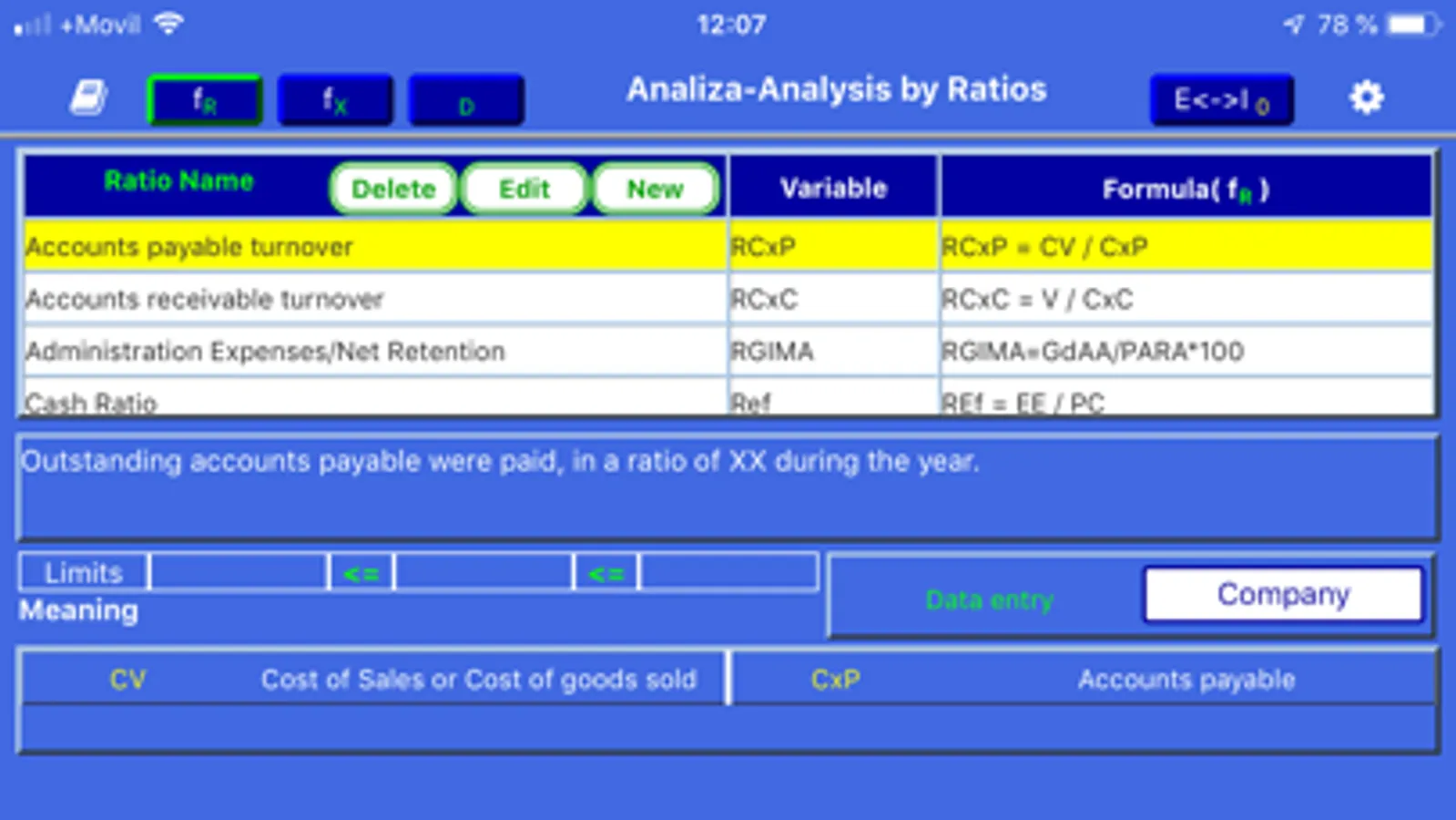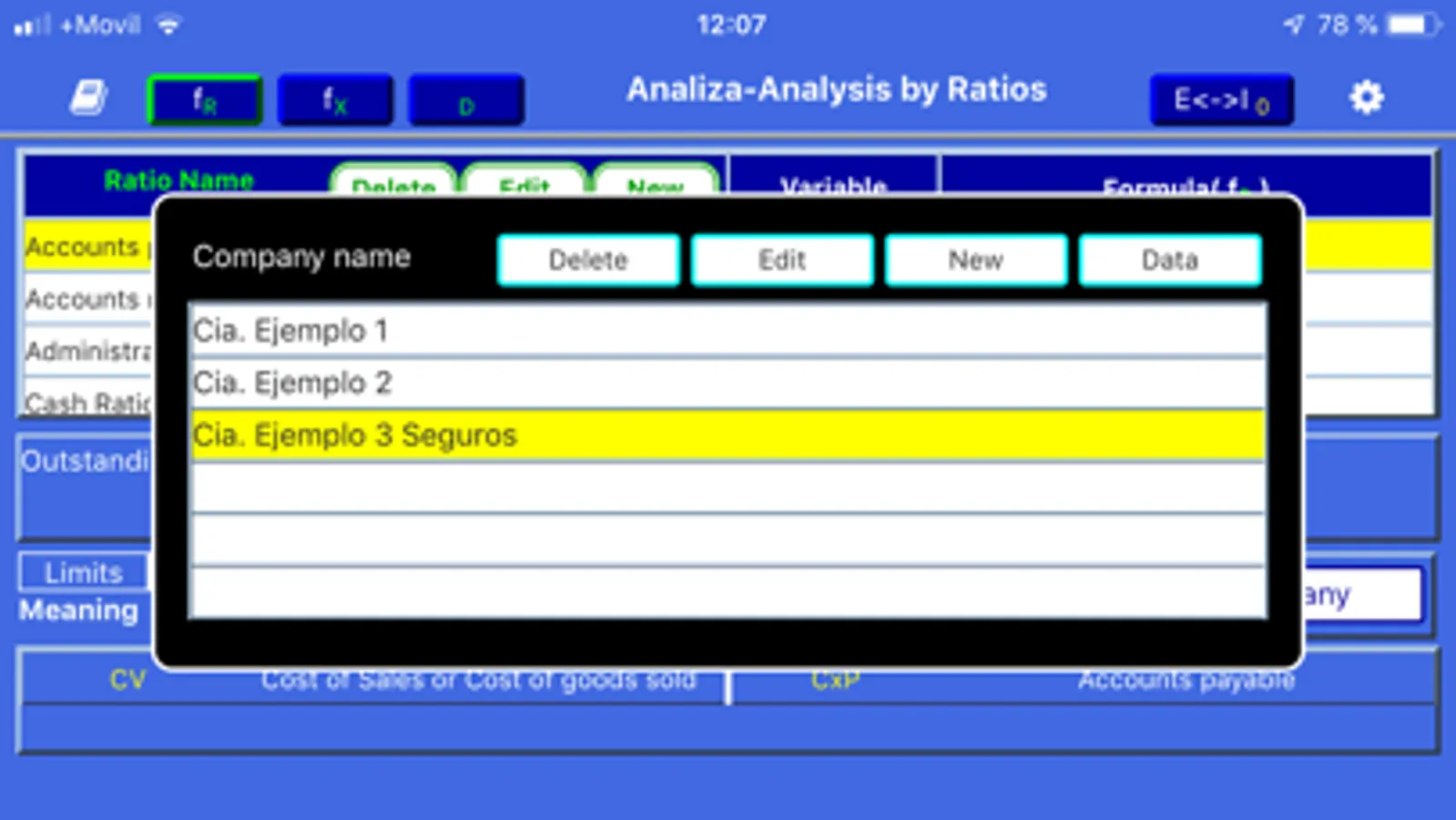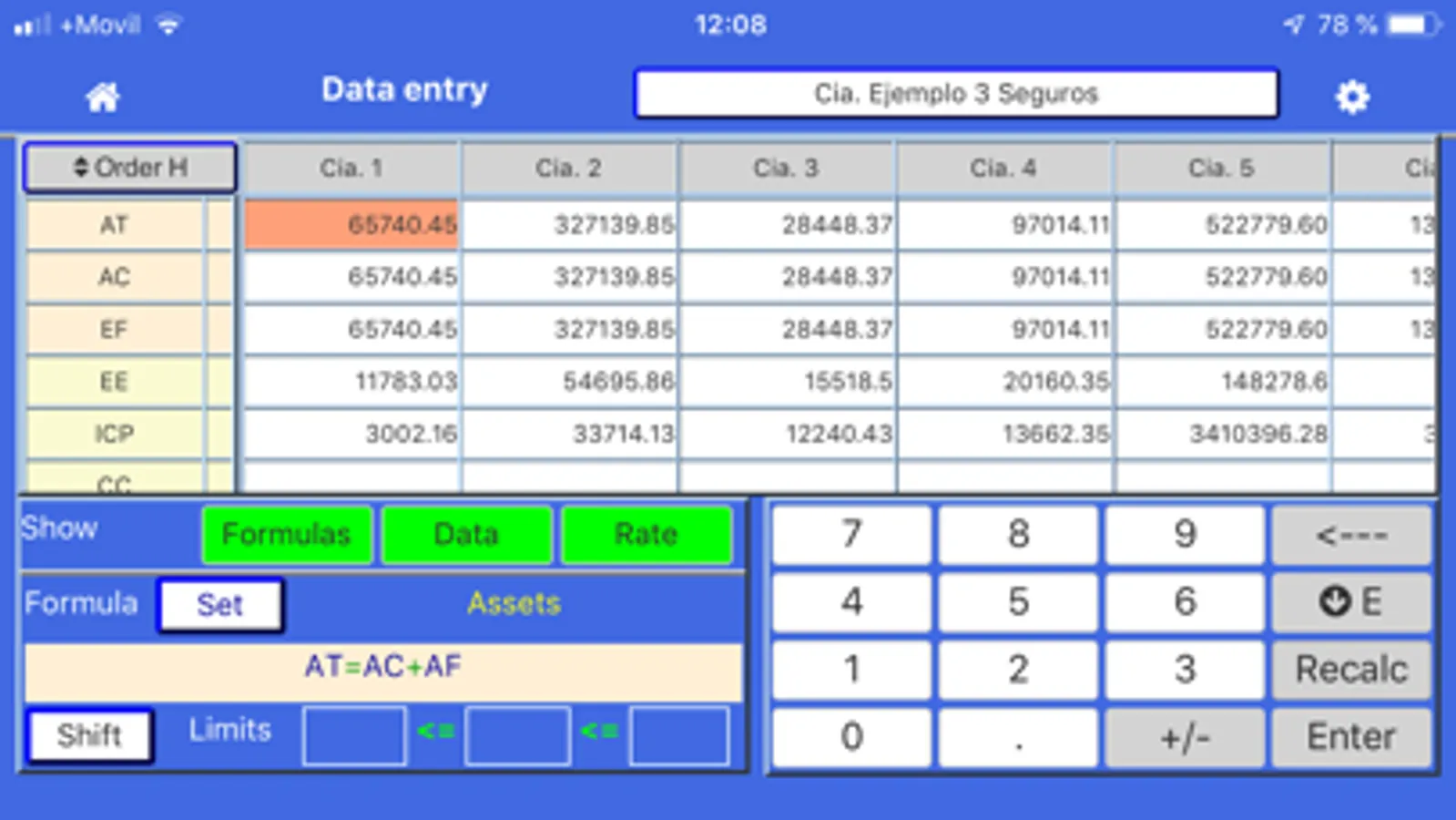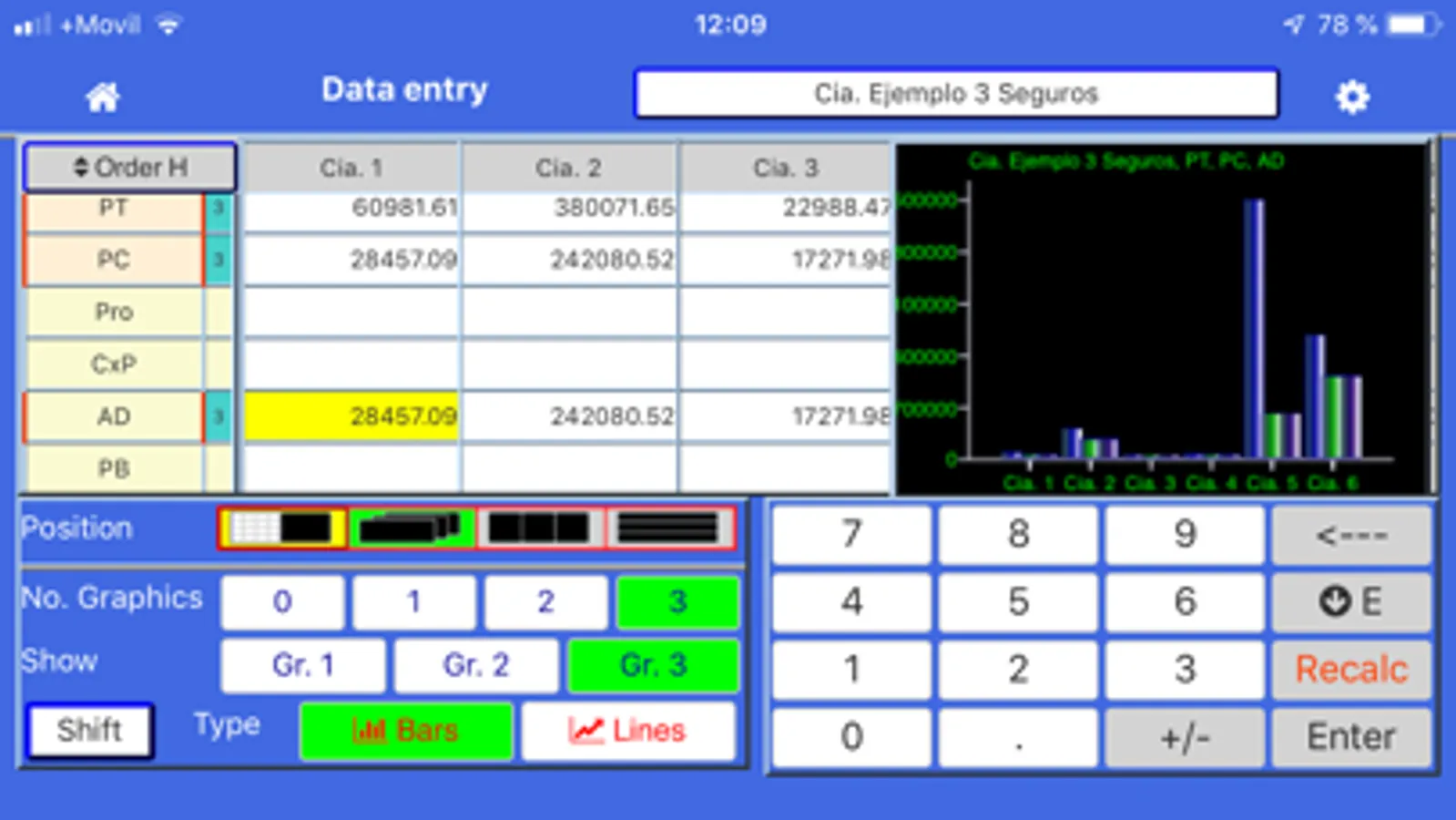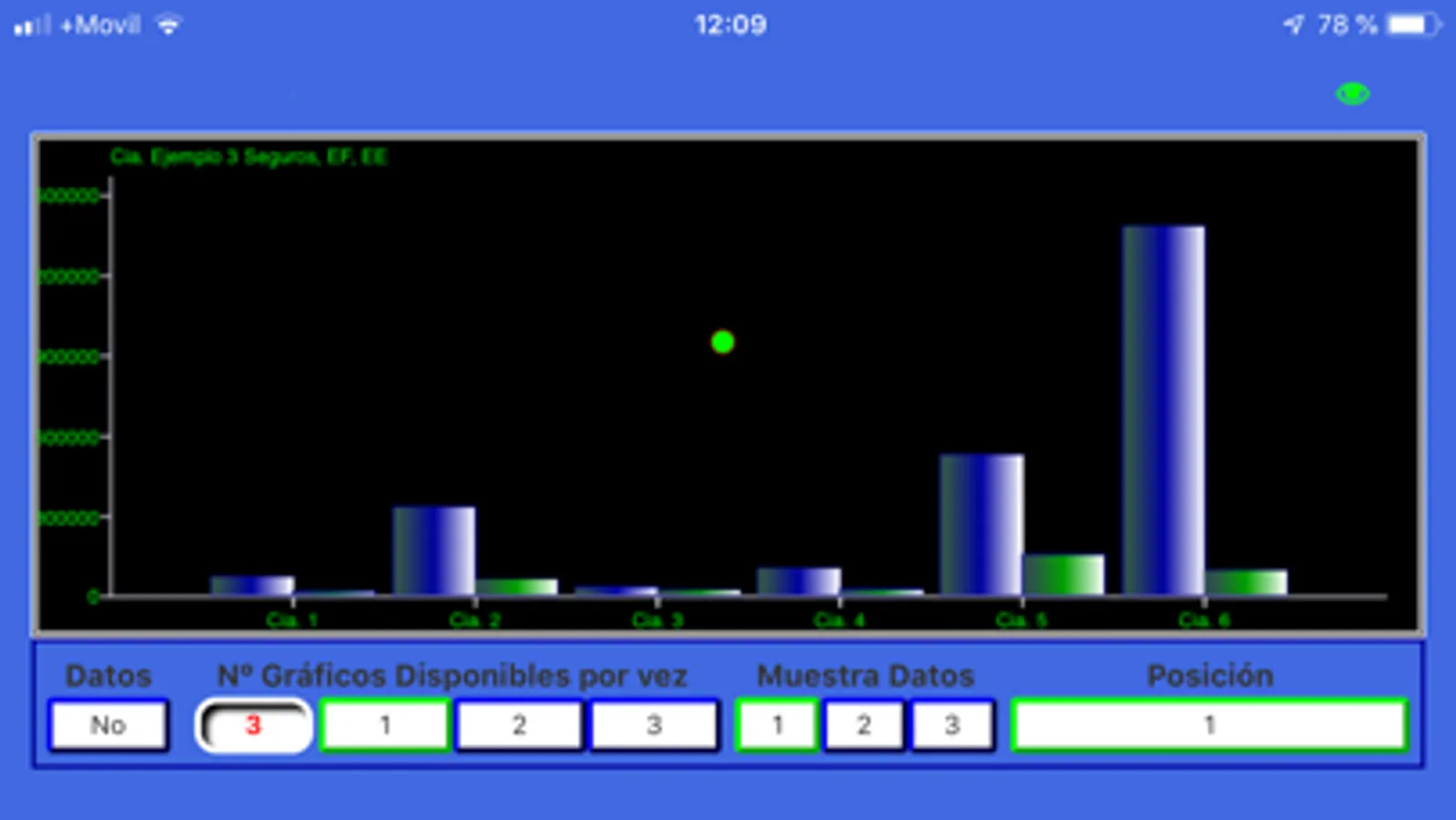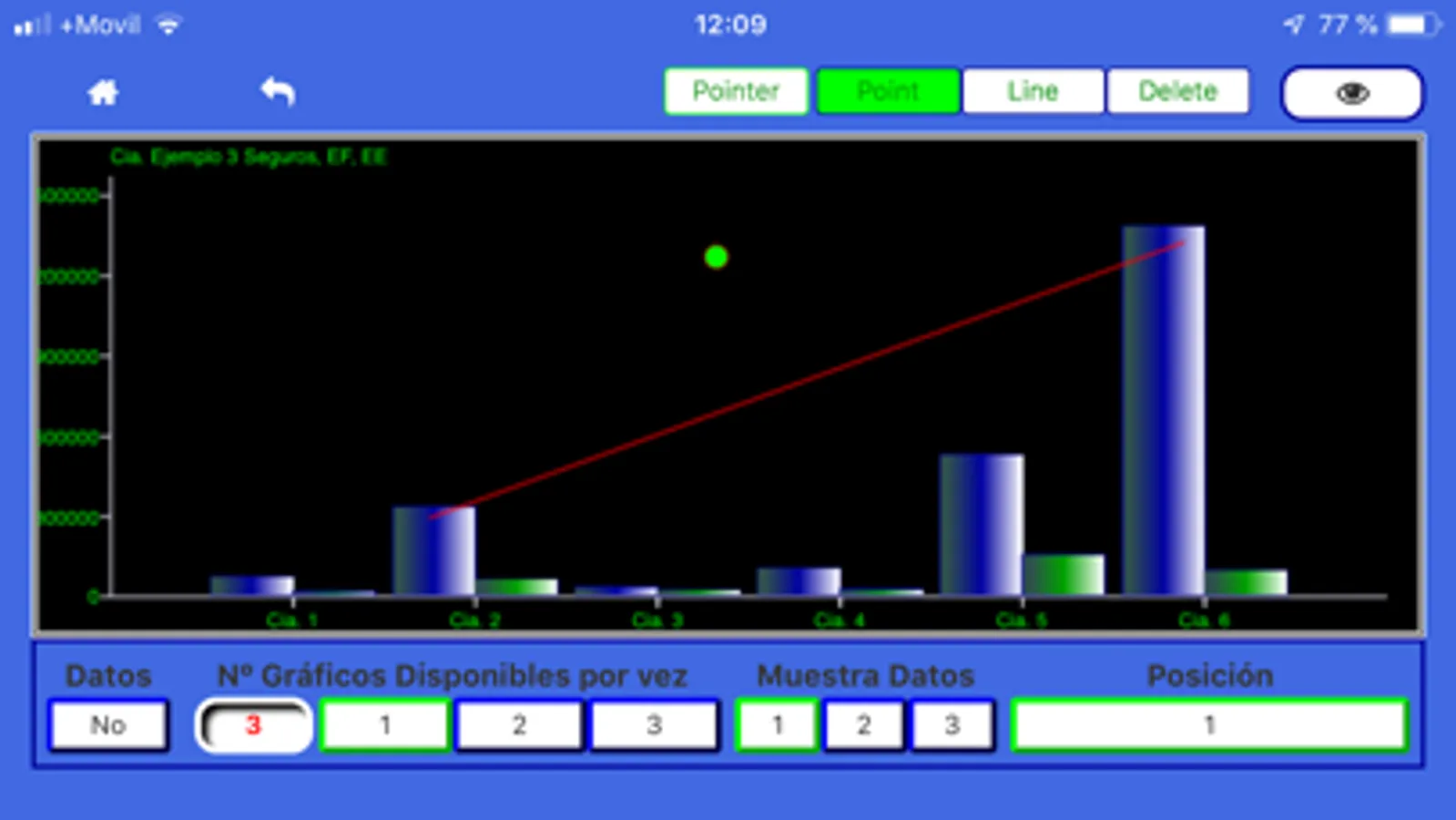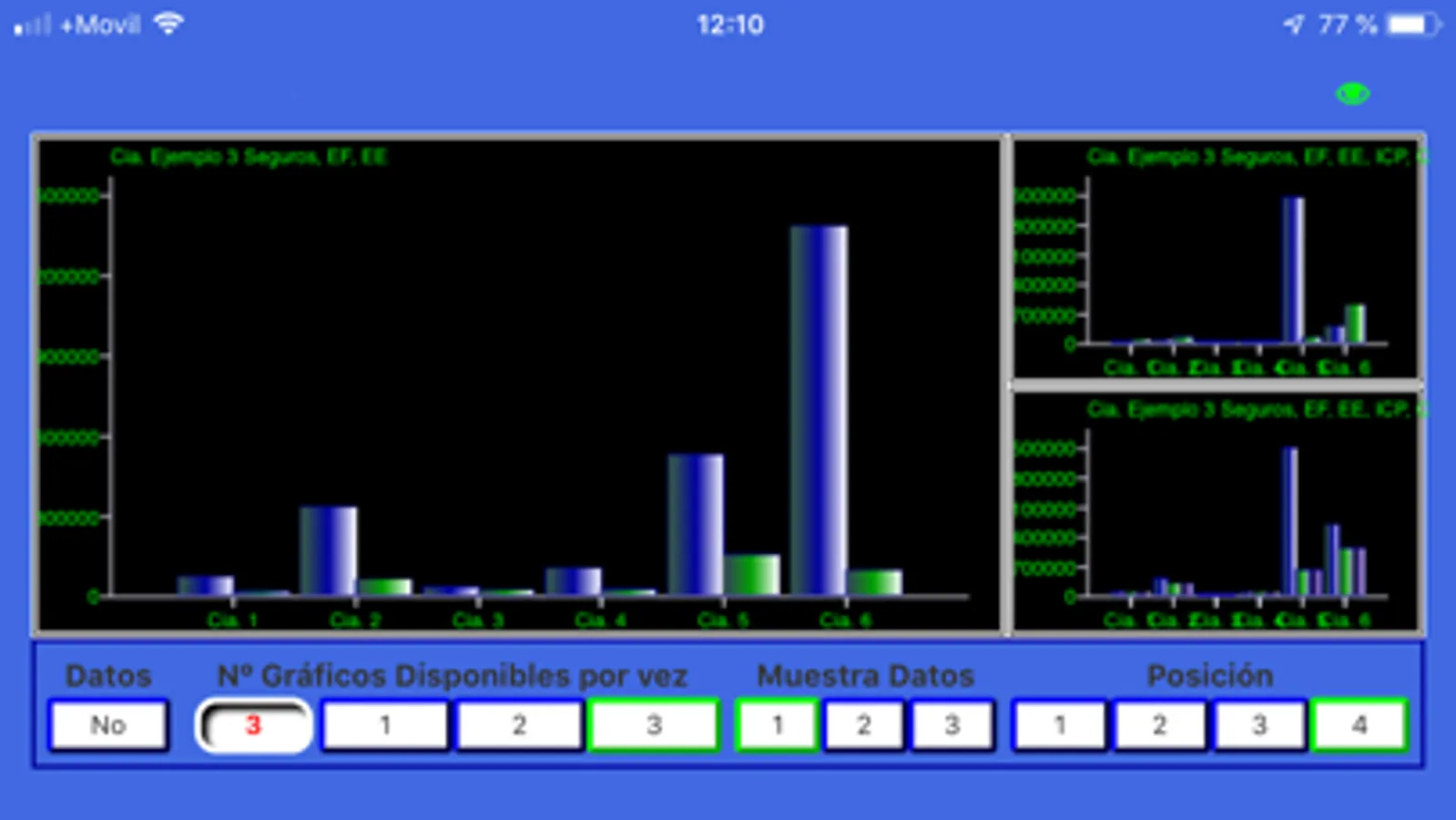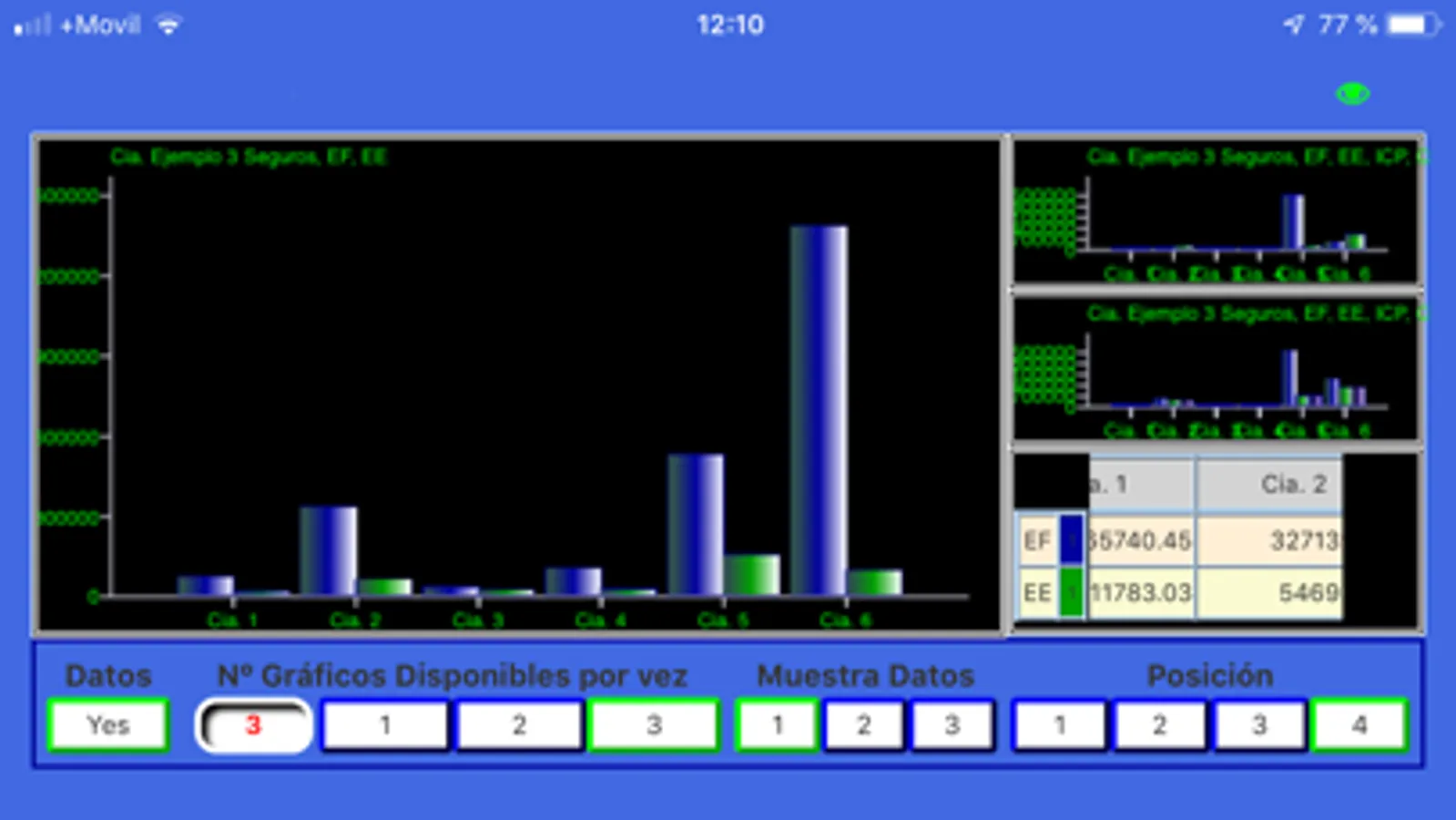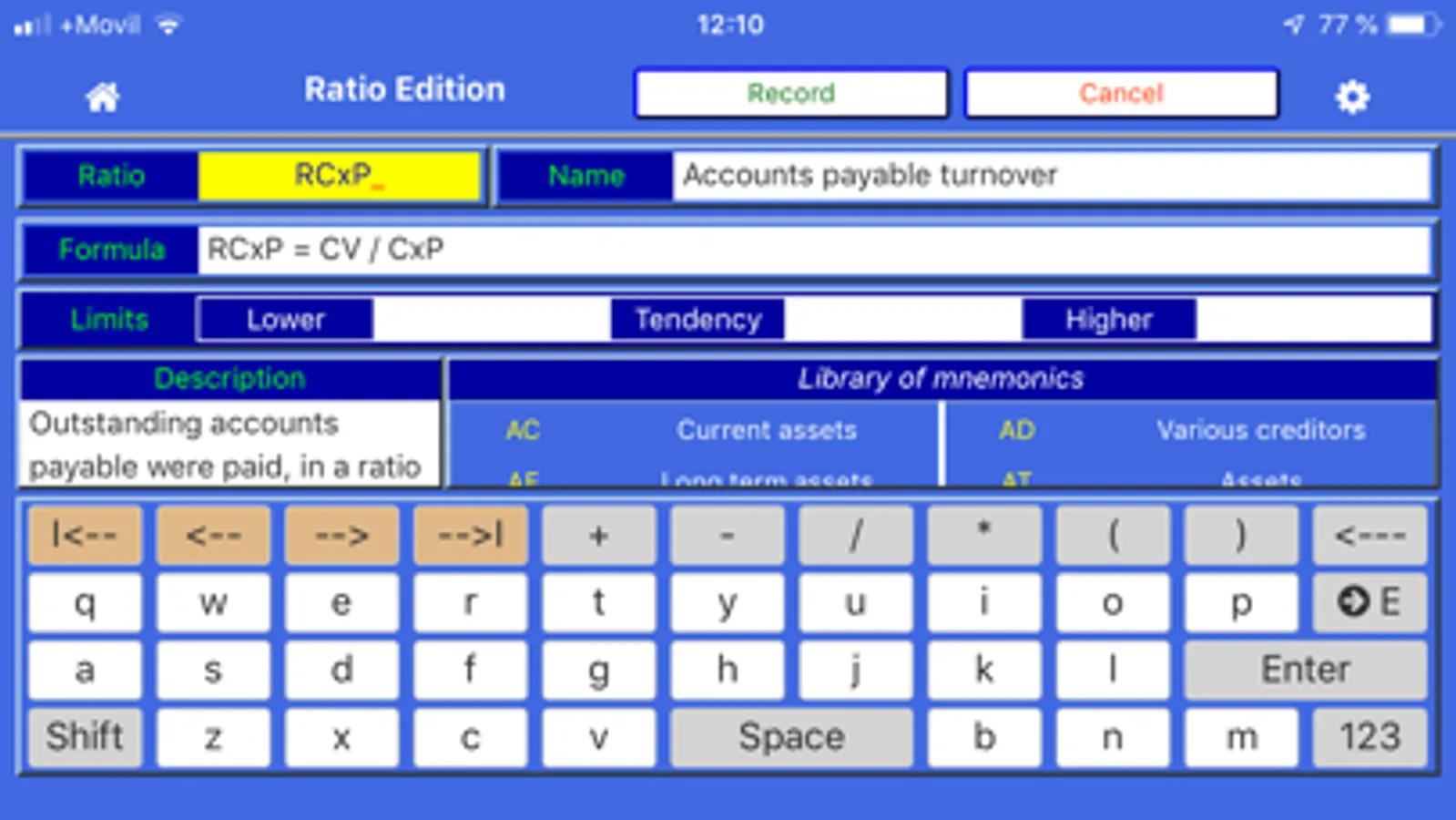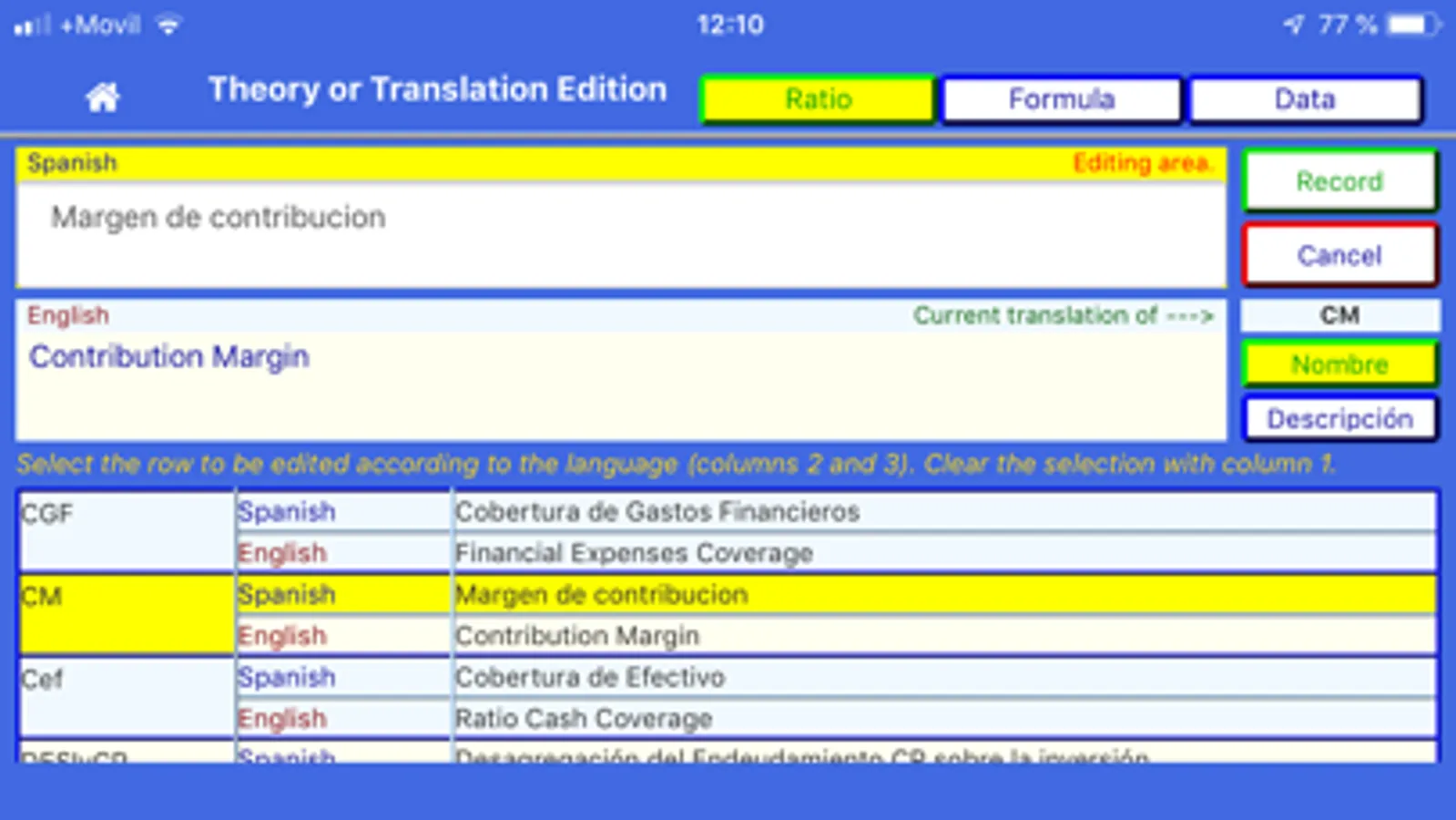About Analiza - Ratios
A powerful tool for analysis (Change the language between Spanish and English when you like in settings).
By default, we present financial ratios widely used for the analysis of companies (53), but the use of this tool extends to all those areas where ratios are handled, if not all areas.
In the case of ratios, it is not a calculator, it is not a dictionary, it is not a concept translator, it is not a textbook, nor a tool for exhibitions, it is all together, because it allows you to calculate and store the data and the results; read, include or modify if so decided the definitions of the key figures or their components; allows you to include or modify concepts and their translation if required; And, it can be transformed into a tool for exhibitions, if you have the additional equipment required for it.
In the included ratios of use or example, the information can be edited, as well as its translation if it is considered convenient (Spanish - English). Likewise, it presents 20 formulas and 58 data variables, which can be edited, as well as those that the user could enter.
The analysis can be done through ratios, formulas and graphs. To make it easier to understand, three examples of data grouping, also called "companies", have been included.
In the case of the most common ratios in company analysis, the referential limits are shown in two levels, numbers and colors. The numbers are indicated as trend signals and the colors what they would mean in each case (usually green for the optimal, red for what is dangerous and amber for what can be considered of little importance).
The data in all cases are editable in such a way that it adjusts to what users establish optimal in their analysis.
The application works with three types of data at the formula level: Ratios, Formulas and Data. Ratios and Formulas are both formulas, however, formulas are considered to be those that consolidate information so that later the result can be used in a Ratio (Example accounting accounts that consolidate).
The data are variables that maintain independent data. Data is the main input to work with formulas and Ratios.
You can create or edit formulas and ratios from scratch. The formulas used for each of them have special keyboards to make working with them easier.
The entry of independent data or the visualization of the result of formulas is done on a screen with the style of a spreadsheet, however, in each case the work cell indicates whether it is possible to edit or enter the data, depending on whether it is located in a result cell or a data entry cell, the latter is highlighted in yellow.
The application has an automatic calculations option that, if active, immediately updates the results of formulas or graphs if they are active. Otherwise, you will have to press the recalculation button.
The graphic option has the option of a pointer, to simulate a laser pointer in the exhibition and also, if necessary, it has the option of drawing lines.
Easy to use and requires no further learning.
In order to practice the options and have a better understanding, in two of the included examples the recalculation of the data has not been activated. This is done in the data entry screen with the "recalculation" key.
By default, we present financial ratios widely used for the analysis of companies (53), but the use of this tool extends to all those areas where ratios are handled, if not all areas.
In the case of ratios, it is not a calculator, it is not a dictionary, it is not a concept translator, it is not a textbook, nor a tool for exhibitions, it is all together, because it allows you to calculate and store the data and the results; read, include or modify if so decided the definitions of the key figures or their components; allows you to include or modify concepts and their translation if required; And, it can be transformed into a tool for exhibitions, if you have the additional equipment required for it.
In the included ratios of use or example, the information can be edited, as well as its translation if it is considered convenient (Spanish - English). Likewise, it presents 20 formulas and 58 data variables, which can be edited, as well as those that the user could enter.
The analysis can be done through ratios, formulas and graphs. To make it easier to understand, three examples of data grouping, also called "companies", have been included.
In the case of the most common ratios in company analysis, the referential limits are shown in two levels, numbers and colors. The numbers are indicated as trend signals and the colors what they would mean in each case (usually green for the optimal, red for what is dangerous and amber for what can be considered of little importance).
The data in all cases are editable in such a way that it adjusts to what users establish optimal in their analysis.
The application works with three types of data at the formula level: Ratios, Formulas and Data. Ratios and Formulas are both formulas, however, formulas are considered to be those that consolidate information so that later the result can be used in a Ratio (Example accounting accounts that consolidate).
The data are variables that maintain independent data. Data is the main input to work with formulas and Ratios.
You can create or edit formulas and ratios from scratch. The formulas used for each of them have special keyboards to make working with them easier.
The entry of independent data or the visualization of the result of formulas is done on a screen with the style of a spreadsheet, however, in each case the work cell indicates whether it is possible to edit or enter the data, depending on whether it is located in a result cell or a data entry cell, the latter is highlighted in yellow.
The application has an automatic calculations option that, if active, immediately updates the results of formulas or graphs if they are active. Otherwise, you will have to press the recalculation button.
The graphic option has the option of a pointer, to simulate a laser pointer in the exhibition and also, if necessary, it has the option of drawing lines.
Easy to use and requires no further learning.
In order to practice the options and have a better understanding, in two of the included examples the recalculation of the data has not been activated. This is done in the data entry screen with the "recalculation" key.
